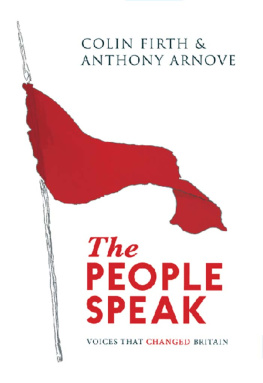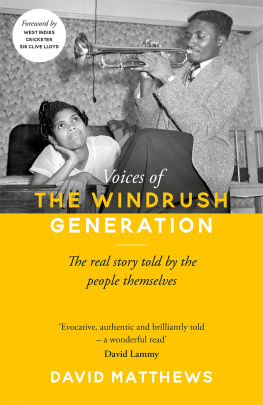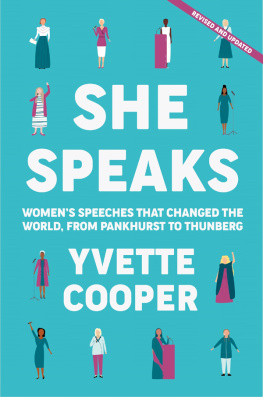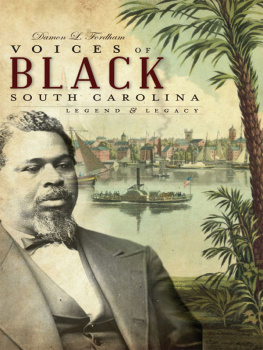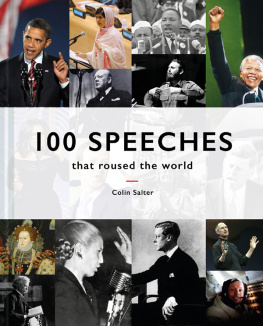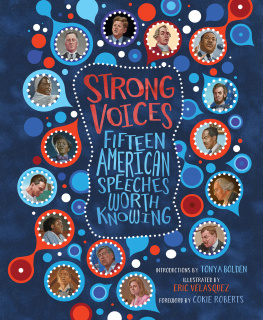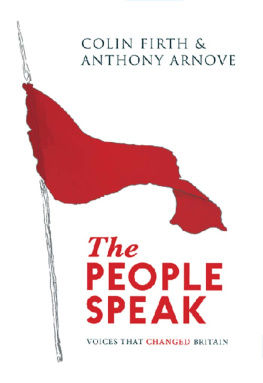
Published in Great Britain in 2012 by Canongate Books Ltd, 14 High Street, Edinburgh EH1 1TE
www.canongate.tv
This digital edition first published by Canongate in 2012
Copyright Anthony Arnove and Colin Firth, 2012
Introductions copyright David Horspool, 2012
The moral rights of the authors have been asserted
For permissions acknowledgements, please see
British Library Cataloguing-in-Publication Data
A catalogue record for this book is available on request from the British Library
ISBN 978 0 85786 445 1
eISBN 978 0 85786 447 5
Typeset in Stone Serif by Palimpsest Book Production Ltd, Falkirk, Stirlingshire
In memory of Howard Zinn (19222010)
An Eminently Skippable Introduction
If you studied O-level history in the 1970s, you probably know as much as I do about the achievements of kings, queens, archbishops and generals. My poor history teacher, Mr Cosgrove, occasionally used to try to liven things up by convincing us that they were all perverts. Hed bewitch us with extracurricular tales of inventive cruelties and obscure peccadilloes. It was often worth going to his class. This will have been offset with impersonal details of irrigation systems and mining utilities, bridges and steam engines anything that testified to Britains industrial, commercial or military prowess.
But whether we were given the official versions of these stories or not, whether they were edited, sanitised, bowdlerised, bare facts or outright lies, something was always missing. While it may be true that history, by which I mean the one were actually living in, is full of kings, queens and politicians written by them or for them (they also have a popular place in film lore, Im told) the absent component always seemed to be just about everybody else. The further back one looked in time, the more everybody else was portrayed as a homogeneous mass: the multitude, the rabble, the people, crowd extras.
In order to give faces or, rather, voices to these people, I felt I had to look outside the classroom and perhaps outside the country. I began to realise that many of the real stories of Britain revealed themselves through its guilty pleasures: the music I wasnt supposed to be listening to, or the jokes I wasnt supposed to be laughing at, or the books I wasnt supposed to be reading. Chief among the latter was Howard Zinns A Peoples History of the United States: a book obviously not directly about Britain but which had an impact on the way I view my own country and the people who are left out of the text-books. Zinn pointed out that these are the people who brought us democracy, that it works from the bottom up. That democracys real protagonists are the troublemakers. He applied this conviction by living his life as a rampant troublemaker himself. And in so doing he changed a great many lives, including my own.
Another troublemaker, named Anthony Arnove, worked with Howard to develop that book into a series of readings celebrating the voices of such people around the United States. Aware of my enthusiasm for their project, they asked me if I would be interested in finding a British equivalent. This is the result of Anthonys and my exuberant and resounding failure to do that. In our attempt to include everything and everybody, we will have excluded whole centuries, whole issues, political movements, sections of the populace and entire countries. There was a millennium or two to cover but we have to sign off at page 485. So, what we are offering you is a tasters menu.
I hope that these voices whether they be socialists, anarchists, agitators, Chartists, suffragists, Lollards or Levellers serve as a reminder that much of what we feel entitled to today, much of what we accept as civilised or decent, began as treason. Was fought for by men and women who werent endowed with any political power, who were hanged for it, transported, tortured or imprisoned, until eventually their ideas were adapted to, adopted and handed down to us as basic rights. These freedoms are now in our care. And unless we act on them and continue to fight for them, they will be lost more easily than they were won.
Some of these words will be familiar to you. Some have been buried for years, words that might not have been heard aloud since they were first uttered. Some are the words of people whose lives overlap with our own.
Before gathering the voices you will encounter in this book, we had the great good fortune to bring together some of our friends and performers we admire to read a number of these selections on stage at a performance in 2010 that was filmed for and later broadcast by the History Channel. (Some day, we hope a DVD of the resulting film, The People Speak (UK), will be available, alongside the film of the same name that Howard and Anthony made in 2009, with Matt Damon, Josh Brolin and Chris Moore (www.thepeoplespeak.com).) This was not actorly activism: often implored to shut up about matters of consequence, actors were doing what they are trained and paid to do act, interpret the voices of others.
It will not go unnoticed that, elsewhere, I have rather conspicuously embraced our monarchic narrative and, in my haphazard professional capacity, also rendered the voice of a king. I can only say that I took great joy in the exercise and now revel in the contrariety. As Emerson would have it, A foolish consistency is the hobgoblin of little minds.
Our exercise is a capricious one. We are not offering an objective version of history. It is not an attack on the many fine history teachers or their curricula (my father is a history teacher the finest of all). It is simply an excursion beyond Mr Cosgroves classroom. The pieces are chosen not necessarily because of their importance or because we feel any sense of responsibility, but because we liked them. Or they sound good out loud. We suggest you try them. Weve cheated a little and added and subtracted from our event for the sake of shape. But not much. Vast quantities of rich and important material have been left out. Hopefully youll feel indignant about that and feel impelled to point it out or, even better, compile another book... and then another.
Most of all, we hope you might find some inspiration in these pages to speak out yourself, and make your own voice heard on the issues that move you. As Howard reminds us, democracy is not a spectator sport, and history is not something on a library shelf, but something in which each of us has a potentially critical role.
Colin Firth
London
May 2012
Note on the Text
While trying to be as faithful as we can to original texts, we have in some cases modernised spelling and punctuation to make the texts accessible. We have indicated omitted text within our selections by ellipses. But in all cases, it is our hope that you will see what we have presented here, which we do not claim to be authoritative, as a gateway to delving deeper into the original sources.
We have imposed a very loose and necessarily arbitrary order on the selections by dividing them into five chronological periods, with extracts that give an idea of the headlines of those times. In between, there are thematic chapters, gathering together material on the environment, the nations of the British Isles, religion, empire and race, money and class, labour, war and peace, gender, and sexuality. For readers who prefer a purely chronological arrangement, there is a table at the end of the book ().
By Way of a Preface
Monty Python, Monty Python and the Holy Grail (1975)
Arthur: Old woman!
Dennis: Man!
Next page
